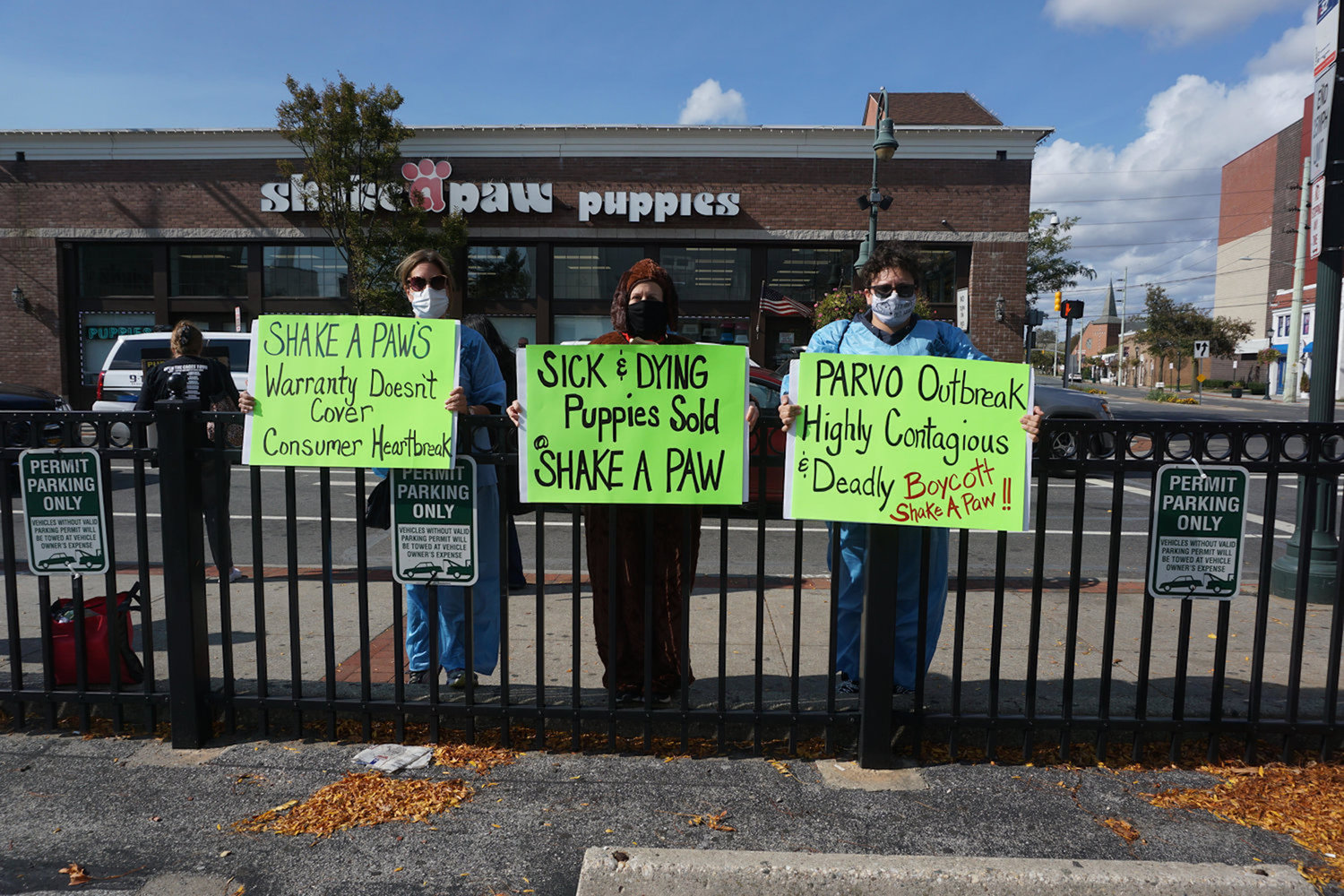Judge upholds temporary ban on Shake A Paw stores in Lynbrook, Hicksville from selling new puppies
Shake a Paw won’t be selling any puppies, at least for now, after a Nassau County judge upheld a temporary restraining order against the company’s two stores in Lynbrook and Hicksville.
Nassau Su-preme Court Justice Helen Voutsinas issued her ruling March 9, dismissing a request by Shake a Paw to resume acquiring new puppies after state Attorney General Letitia James filed a lawsuit last December, claiming the stores knowingly bought and sold sick dogs amid years of customer complaints.
“I am glad that our court order has been upheld so that Shake A Paw cannot buy or adopt any more puppies for resale in New York,” James said in a statement. “My office will continue to hold them accountable and protect innocent puppies.”
James also introduced new evidence she said showed some breeders used by Shake a Paw gave puppies horse medication, which was not approved for use in dogs.
Messages left for managers at Shake A Paw were not returned. In an emailed statement to the Herald, Shake a Paw attorney Richard Hamburger said James “deliberately distorted the facts and abused the judicial process.”
“The claim that Shake A Paw knowingly sells sick puppies is groundless,” he said. “As permitted by the court, Shake A Paw has continued to sell puppies during the pendency of this lawsuit. The medications allegedly given by breeders to Shake A Paw puppies are approved for use in dogs.”
Voutsinas allowed the stores to remain open to sell their existing order of puppies, so long as they didn’t acquire new ones.
Hamburger added that the attorney general has not identified any puppies that were even given the claimed medications, adding that an independent court-approved veterinarian determined that only six of 220 puppies examined at Shake a Paw in January and February were not healthy.
Even more, unannounced state inspections found that both the Lynbrook and Hicksville stores were in complete compliance with regulatory requirements, including housing, sanitation, feeding, veterinary care, record-keeping and Pet Lemon Laws, Hamburger said. Shake a Paw only acquires puppies from federally licensed breeders and brokers, he added.
But the suit filed last December described the source of Shake a Paw’s animals as puppy mills, while telling customers they were instead from legitimate breeders.
Many of the puppies had been afflicted with serious health issues, including pneumonia, breathing problems, infections and congenital defects, James claims. Several had parasites.
Some customers told James that certain issues were kept hidden from them while health certificates were doctored to advertise healthy dogs for sale, and lying about breeds.
At least nine dogs sold by Shake a Paw “died soon after sale” from various ailments, according to the suit, while a number of customers paid for “hundreds of dollars of unnecessary additional goods and services” — sometimes thousands of dollars.
A number of owners claimed they had to quickly take their new dogs to the vet, racking up bills they say Shake a Paw refused to reimburse them for.
The attorney general’s office has received nearly 100 complaints about the stores since 2016, with another 30 or so complaints filed with the Better Business Bureau.
James claimed that a veterinary records probe found that nearly half of more than 400 dogs sold at Shake a Paw had infections, or were coughing, sneezing or had breathing problems.
More than half were infected with parasites, while 10 percent suffered from pneumonia.
James is seeking unspecified damages from Shake a Paw, as well as fines.
Jessica Tagliarino wasn’t a Shake a Paw customer herself, but she was related to some who were.
“I know three dogs purchased there by my family members,” she said in 2018. “All needed surgeries. All were different breeds and had different reasons. One died too young, at 2 years old.”
Dozens of people gathered outside the Lynbrook store in October 2020, chanting “Adopt, don’t shop!” and “There’s no excuse for animal abuse!”
Voutsinas’s order allowed Shake a Paw to continue selling puppies it already owns, but only after each was examined by an independent veterinarian appointed by James and found fit for sale. The company was also ordered to produce a full inventory of puppies already purchased, but not yet sold.

 56.0°,
Overcast
56.0°,
Overcast 




